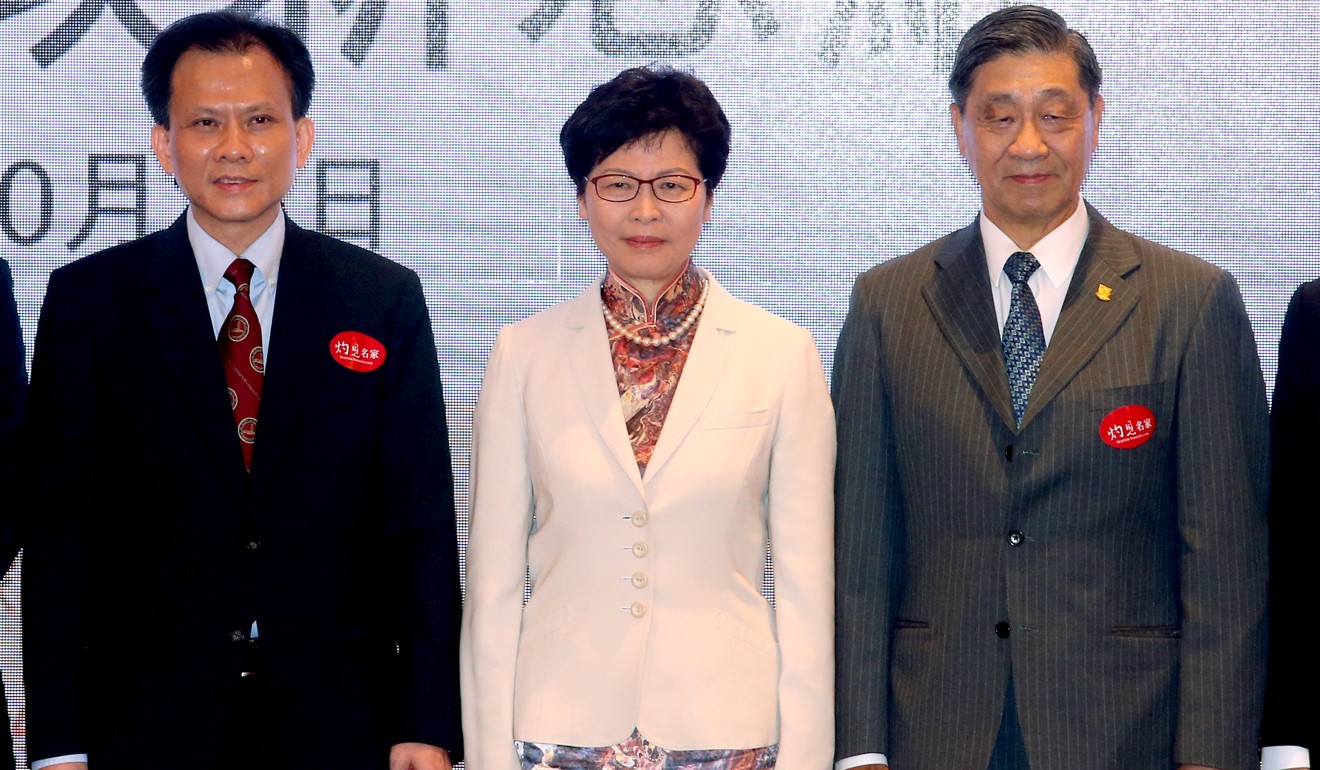
Hongkongers want high-speed rail link and mainland border plan could progress without Legco support, Carrie Lam warns
City leader denies threatening lawmakers, saying she is doing her duty because Hongkongers want to see the rail link begin on schedule next year

Carrie Lam Cheng Yuet-ngor warned on Thursday that the government could push ahead with joint border checkpoints for the city’s high-speed rail link to mainland China, and not “sit back and watch” as lawmakers filibuster.
The chief executive’s comments came as opposition legislators succeeded in postponing the debate on the so-called co-location plan until next week. Under the plan, the city would lease part of a new rail terminal to the mainland, giving its officials almost full jurisdiction over immigration and customs there.
Pan-democrats have lambasted the plan for undermining the autonomy granted to the city in its mini-constitution, the Basic Law.

The Legislative Council began discussing the checkpoints at about 12.30pm on Thursday after filibustering from the opposition delayed debate on the motion for several hours the day before.
But any hope Lam might have had of a smooth passage on Thursday was promptly quashed when pan-democrat Claudia Mo Man-ching moved to adjourn the motion, meaning the chamber then had to debate whether to adjourn. Every member can speak for 15 minutes.
When the meeting finished at 8pm, the debate had already dragged for another seven hours on Mo’s motion, and was set to continue on Wednesday.
The government does not need Legco’s approval to forge a deal with mainland authorities on the border arrangement. But it had hoped the non-binding motion that it moved on Thursday would give opposition members a voice in the process, and give it the mandate to go ahead and iron out the details.
The council would still have to approve the final plan.
Lam said on Thursday morning she was “not confident” that the non-binding motion would pass soon.
“If the [pro-democracy] lawmakers still drag out the debate by such means, I would not rule out kick-starting the ‘three-step process’ simultaneously as there is a time frame,” she said.
She said Hongkongers hoped to see the HK$84.4 billion (US$10.8 billion) rail link open on schedule in the third quarter of next year.
The “three-step process” refers to signing a cooperation agreement with mainland authorities, then endorsement by its legislative body, the National People’s Congress Standing Committee, and finally enacting local laws.
Lam said the Standing Committee would have to endorse the plan by the end of December, followed by scrutiny by Legco’s bills committee for up to three months, before being officially approved by lawmakers before the parliament’s summer recess in July.
She denied threatening lawmakers, and said she was only doing her duty.

“By providing a non-binding motion, we are providing an opportunity for members of Legco to debate and reflect their views on the co-location proposal before we commence the three-step process,” Lam said.
“But if some of the members of Legco use this process to filibuster … the government could not just sit back and watch this situation. We have to respond in a very responsible way.”
Lam claimed her administration had already made a number of compromises since taking over in July, in a bid to ease strained ties with the legislature. She highlighted the government’s concessions on the Medical Registration Ordinance as an example.
“Executive-legislature relations are based on mutual respect and trust,” she said. “We have already shown [our part]. But if that respect and trust is abused and is harming Hong Kong society, as a responsible chief executive I have no choice but to react.”
Lam refused to say how she would kick-start the three-step process, only saying she hoped the non-binding motion could be passed by next week.
Civic Party lawmaker Tanya Chan, convenor of the co-location concern group, said Lam’s remarks indirectly revealed that the motion did not mean much, as its outcome would not affect the plan’s implementation anyway.
Chan said it was a “joke” for Lam to say she respected Legco.
“How much does she respect Legco, with her administration trying to force through the passage of a non-binding motion without going through a public consultation?”
Fierce debate continued inside the chamber, as both camps gave their opinions on the adjournment motion.
“The government never got overwhelming public support on the plan in any surveys,” Democratic Party lawmaker James To Kan-sun said, adding that the government should adjourn the motion to allow time to gather public opinion.
Pro-Beijing lawmaker Gary Chan Hak-kan said the opposition stemmed from blind mistrust pan-democrats hold against Beijing.
“They dislike mainland China and won’t take the rail. But many Hongkongers who need to go to the mainland wish the rail to be operated sooner,” Chan said.